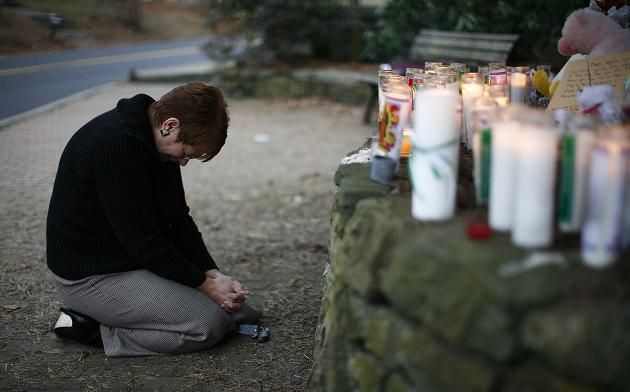After Sandy Hook, Michigan Gov. Snyder Vetoes Concealed-Gun Bill

Michigan Gov. Rick Snyder had a tough choice to make this week regarding gun control. He had to decide between allowing gun owners with additional training to carry concealed weapons in schools, and making sure public places where guns are currently banned still have the choice to determine their own safety measures.
Snyder on Tuesday vetoed a bill that would have allowed concealed weapons in schools. His decision came after Friday’s mass shooting at the Sandy Hook Elementary School in Newtown, Conn., where an armed 20-year-old forced his way in and killed of 20 children and six adults.
Snyder’s office said his decision was taken primarily because of a loophole in Senate Bill 59. It failed to allow these public institutions – schools, day care centers and hospitals – the choice to opt out. Simply put, the legislation didn’t allow for these places to ban weapons from their establishments.
Michigan law doesn’t prevent a holder of a licensed handgun from openly carrying it in such public places.
Snyder couldn’t be reached for a comment, but in a press statement he said, “While we must vigilantly protect the rights of law-abiding firearm owners, we also must ensure the right of designated public entities to exercise their best discretion in matters of safety and security. These public venues need clear legal authority to ban firearms on their premises if they see fit to do so.”
Michigan lawmakers approved Bill 59 last Thursday, less than 24 hours before the Connecticut slaughter. By Tuesday, it was on the governor’s desk.
When the horrific crime occurred, thousands of phone calls – more than 6,000, said NPR – emails and Web messages came to Snyder’s office. Most urged the governor to use his veto power and not allow concealed guns in schools, NPR reported.
Some lawmakers praised Snyder’s actions, telling local papers that this wasn’t the time to “recklessly advance the expansion of concealed weapons in Michigan.”
Others said there isn’t anything Snyder can do to stop evil.
State House Speaker Jase Bolger, a Republican, issued a statement after the veto, stating that while he cannot imagine the heartbreak felt by those affected, “The sad truth is that signing or vetoing Senate Bill 59 would have had no impact on that tragedy.
“With regard to this specific legislation, it is unfortunate a compromise was not reached that the governor could support, and I understand the governor exercising his authority. It also is unfortunate that this veto does not make Michigan citizens safer in gun-free zones,” the statement read. “Neither the governor’s approval nor his veto will stop evil from preying on innocent people. With this veto, however, open-carry still exists in schools, churches and other public areas, and we know that criminals do not respect gun-free zones. For these reasons, we will continue to work with the governor to best protect our law-abiding citizens' Second Amendment rights, as well as the safety and security of all of our citizens.”
Seeing the need for urgency on the issue, President Barack Obama has already begun an effort to limit gun violence. He has asked that Vice President Joe Biden, an advocate of gun control, lead the legislative work. Still, there will need to be a consensus on just how to tighten restrictions on weapons, especially when pro-gun advocates, and others, are calling for greater focus on mental health.
Meanwhile, Snyder has called for a review of Michigan’s services, which includes finding any blocks to early intervention dealing with behavioral, emotional and mental health issues; asking law enforcement, courts and health care agencies to partner and provide training on tools to better identify high-risk youth.
The schools will have to play a part too, as Snyder wants districts to offer practical solutions on how to keep weapons off their properties.
“A thoughtful review that examines issues such as school emergency policies, disenfranchised youth and mental health services may lead to more answers and better safeguards,” Snyder said.
© Copyright IBTimes 2025. All rights reserved.






















